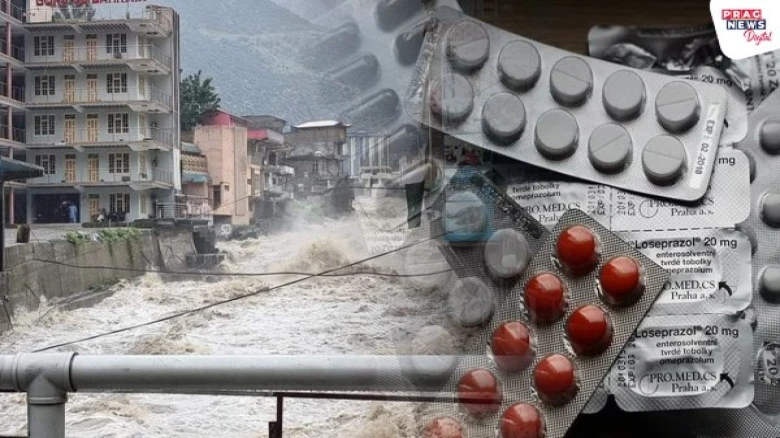North East

Massive monsoon rainfall and massive levels of flooding continue to afflict several areas in Pakistan, posing public health risks.
Digital Desk: Following massive rains and floods in Pakistan, about five billion people are in danger of suffering numerous ailments, and medical professionals and organizations have warned that medications worth billions of rupees are urgently needed in the affected areas.
"According to international trends and studies, around five million individuals are in danger of various illnesses. "If we retain the minimum medicine price for each patient at PKR 220, we'll need pharmaceuticals worth at least a billion rupees," said Sufyan Khan, managing director of Al Khidmat Foundation's (AKF) health section.
Meanwhile, according to a poll, religious parties have established the most number of assistance camps for flood victims in Pakistan.
Another poll performed by an NGO discovered that religious parties have established the greatest number of relief camps and are getting the largest amount of funding, resulting in a reaction against the Pakistan government and its failure to deal with the floods.
According to a recent NGO poll, religious groups have established the greatest number of relief camps and have received the most money.
More than 6.4 million people in Pakistan are in desperate need of humanitarian assistance as severe floods wreak havoc on the country.
Heavy rains have brought flash floods, landslides, and glacial lake eruptions across Pakistan. In just three weeks in July, the nation got more than 60% of its usual annual monsoon rainfall.
Numerous regions in Pakistan are still being devastated by tremendous monsoon rainfall and record levels of flooding, posing public health risks and putting the people in danger of further spreading water and vector-borne illnesses such as malaria and dengue fever.
According to reports from several impacted areas, about 888 health institutions have been damaged across the country, with 180 entirely destroyed, leaving millions of people without access to health care and medical treatment.
Leave A Comment